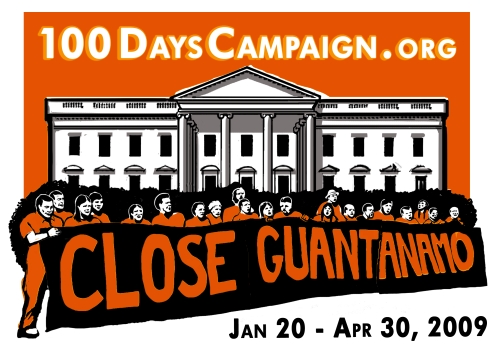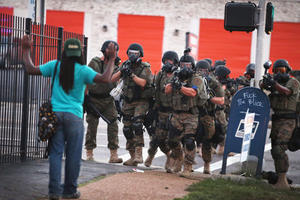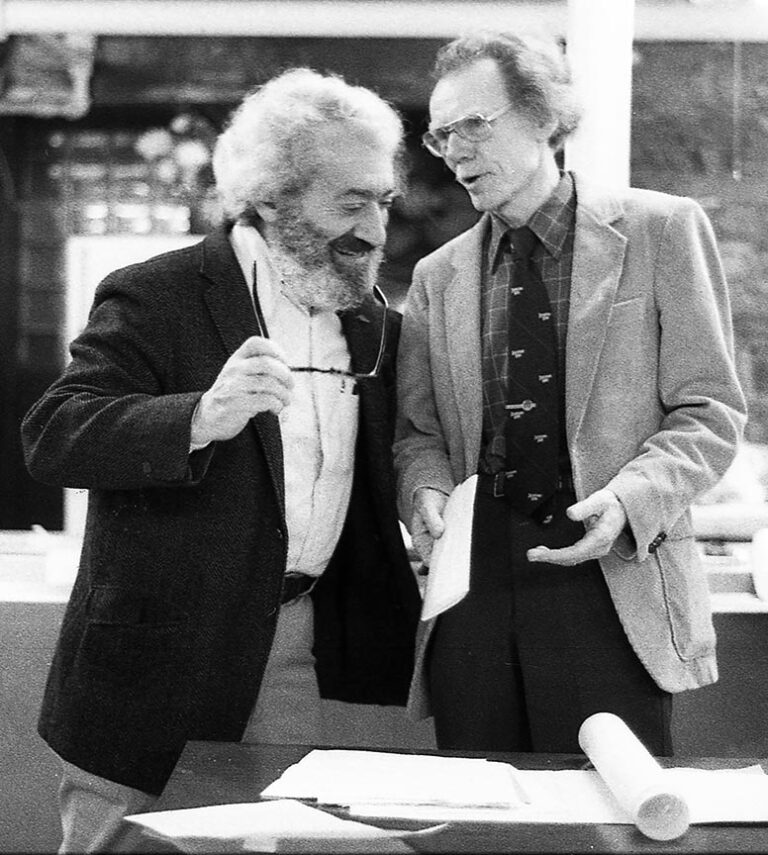Merchant of Death of the Month: Science Applications International
Nonviolent Activist, January – February 2006
Merchant of Death of the Month:
Science Applications International
By Frida Berrigan
WANTED:
SAI, Inc.
Aliases/Subsidiaries
Bechtel SAIC Corporation LLC, a joint venture with Bechtel to “meet the unique challenge of science and engineering for the Yucca Mountain Project;” ANXeBusiness Corp., a computer corporation; Data Systems & Solutions, a joint venture with Rolls Royce.
Corporate Headquarters
San Diego, CA
Primary Products/Services
Engineering and technical solutions, secret military technologies, flashlights, super computers, missile defense components and propaganda
CEO
Ken C. Dahlberg
Contracts
Department of Defense, Department of Energy, Centers for Disease Control and Prevention, and many others
Campaign Contributions
$1.08 million since the 2004 election cycle, 60% to Republicans
Science Applications International Corporation (SAIC) does everything from intelligence gathering to missile defense studies to Iraq-related work for the Pentagon. A research and engineering company, SAIC works on national and homeland security projects, and has energy, environment, space, telecommunications, health care, and logistics contracts. About two-thirds of its contracts come from the federal government. This company does not do windows.
The San Diego-based company is proud to be “employee owned.” For some of us that conjures up images of cooperative bookshops, cafes, and the Green Bay Packers. But for SAIC, “employee owned” means no investor scrutiny, less public information, and limited accountability. The company boasted more than $7 billion in revenues in 2004 and employs 43,000 people in 150 cities, according to their press releases.
In 2000, it drew in $1.5 billion in Pentagon contracts, making it the tenth largest recipient of military dollars. In 2004, SAIC was number eight, with $2.5 billion in contracts. The one-word explanation for a billion-dollar increase over four years? Iraq.
Occupation Goldmine
Along with the Lincoln Group (which recently made headlines for its $100 million contract with the Pentagon to write articles favorable to the U.S. occupation and place them in Iraqi newspapers bearing Iraqi bylines) and SYColeman, SAIC was recently awarded a 5-year $300 million contract to boost the United States’ image abroad. The three companies will develop slogans, advertisements, newspaper articles, radio spots, and TV programs aimed at building support for U.S. policies overseas.
According to a June 18, 2005, San Diego Union Tribune article, the propaganda effort will target “higher threat areas such as Iraq and Lebanon” and will be aimed at garnering “support for U.S. government policies and objectives in foreign countries among foreign audiences.” Not only will SAIC and the other companies generate media, they also plan to distribute “novelty items” like t-shirts and bumper stickers.
This is not SAIC’s first foray into the world of international propaganda. In 2003, the company was awarded a no-bid contract from Joint Psychological Operations Support—a wing of the Pentagon—to run the Iraqi Free Media Program. Handpicked to head the $80 million program by L. Paul Bremer (then-head of the Coalition Provisional Authority), the company had no news operations experience. Investigators from the Pentagon later found that the network—which included television, radio and newspapers—was mismanaged and opted not to renew SAIC’s contract.
In the lead-up to the U.S. invasion, SAIC got the contract to help establish the Iraqi Reconstruction and Development Council. This group of about 150 Iraqi-born U.S. citizens came to Baghdad in May 2003 to serve as the “Iraqi face” of the occupation authority. There they were groomed for leadership of 23 key Iraqi ministries after the invasion and occupation of Iraq. Members of the IRDC were officially employed by SAIC because, as a Pentagon spokesperson explained, prior to the U.S. intervention it would have been awkward if they had Pentagon phone numbers. The IRDC was dissolved along with the Coalition Provisional Authority when “sovereignty” was turned over to Iraq.
The company is also a subcontractor on Vinnell’s bid to train Iraqi police and security forces. The $48 million sole-source contract was awarded in June 2003 to Vinnell, a subsidiary of military behemoth Northrop Grumman. Under the contract, Vinnell was given a year to train nine 900-troop battalions for the Iraqi army, with an option to train all 27 battalions if it performed well. Two- and-a-half years later, the training of Iraqi security forces remains an unfinished problem at which the Pentagon throws money.
Washington Connection
Duane Andrews, an SAIC executive vice president and chief operating officer, is a former Pentagon official who oversaw CIA budgets as assistant secretary of defense. In February 2005, SAIC’s vice president Christopher Ryan Henry took a trip through Washington’s revolving door, entering the Pentagon’s E-Ring as a senior policy official.
Former SAIC CEO Wayne Downing, a retired army general and former head of Special Operations Command, has his own connections to Iraq as a former lobbyist for the Ahmed Chalabi’s Iraqi National Congress. He left SAIC to take Defense Secretary Donald Rumsfeld up on an offer to assess U.S. Special Operations Command and offer suggestions for improving the force. Ken C. Dahlberg replaced Downing as CEO.
David Kay served as an SAIC vice president until October 2002. There he coordinated homeland security and counter-terrorism initiatives—going so far as to claim that Iraq could launch a terror attack on the U.S. mainland. A former U.N. weapons inspector, Kay left SAIC to head the CIA’s Iraq Survey Group, a U.S. effort to discredit U.N. inspections in Iraq and track down weapons of mass destruction.
The company has its hands full with other projects as well. In collaboration with Boeing, SAIC is working on the Future Combat System, a massive $92 billion undertaking to revolutionize how soldiers in combat areas receive and act on intelligence. FCS will integrate ground vehicles, sensors, and reconnaissance aircraft and link them with ground troops by satellite.
Frida Berrigan is the Senior Research Associate at the World Policy Institute.
Share





